I have the following statement:
AnotherClass temp = myCustomList
.Where(x => x.bTyp != null && x.bTyp is IEnumerable<T>)
.FirstOrDefault();`
The statement above says that temp is null, but it shouln't be.
T gets as a value a generic List of MyCustomClass like List<MyCustomClass>.
x.bTyp has as a value typeof(IEnumerable<MyCustomClass>)).
The debugger gives me for myCustomList something like this:
bTyp = {System.Collections.Generic.IEnumerable1[...MyCustomClass]}`
How should I rewrite the statement that temp is not null and will return an result ?
